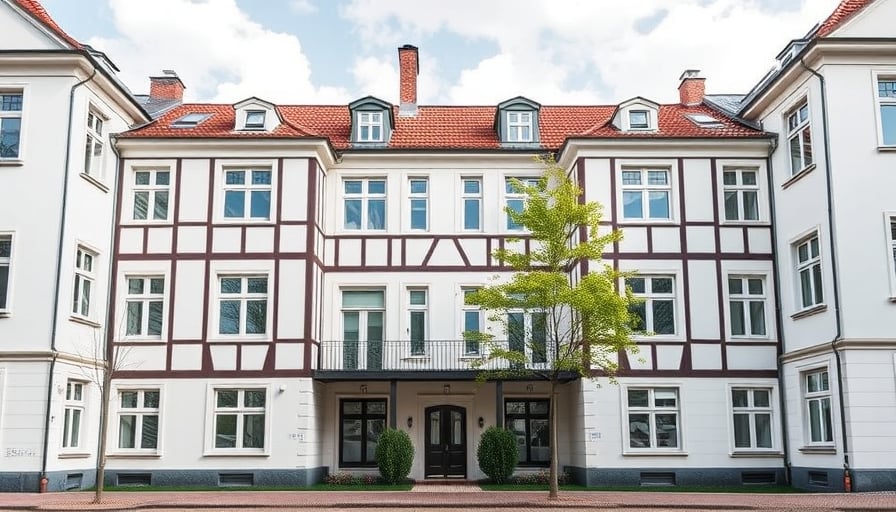Corporate Analysis: Von Bau’s Performance Amid Interest‑Rate Headwinds
Von Bau, Germany’s largest residential real‑estate operator, has experienced a pronounced decline in share value over the last several months. The deterioration is rooted in a confluence of macro‑economic pressures and company‑specific events that have eroded investor confidence.
1. Macro‑Environmental Drivers
1.1 Central Bank Policy
The European Central Bank’s (ECB) decision to keep policy rates at the current level has reinforced the cost of borrowing for real‑estate firms. Higher discount rates increase the present value of future rental income streams, thereby compressing valuation multiples for property owners. The lack of an imminent policy shift has intensified uncertainty, particularly for firms with high leverage.
1.2 Global Market Sentiment
Despite robust economic data from the United States and other major economies, the DAX index remains subdued. Market participants continue to weigh the ECB’s stance and potential future tightening against the backdrop of rising inflation. In this environment, equity valuations in the real‑estate segment tend to lag, as investors demand higher risk premia for exposure to interest‑rate sensitive assets.
2. Company‑Specific Events
2.1 Capital Increase
Von Bau’s recent equity raise aimed to shore up its balance sheet in anticipation of tighter credit conditions. While the capital infusion improves liquidity, it has also diluted existing shareholders and signaled that the firm’s debt capacity is limited. Analysts interpret the capital increase as a double‑edged sword: necessary for resilience but indicative of underlying financial strain.
2.2 Media Coverage
A critical media report raised doubts about the company’s ability to withstand prolonged rate hikes. Negative press can accelerate sell‑off pressure, especially when it touches on a firm’s debt servicing capacity and profitability outlook. The resulting decline in share price was immediate and contributed to Von Bau’s ranking as the weakest performer in the DAX for the past month.
3. Competitive Positioning
Von Bau competes with a cohort of European property developers and owners such as LEG Immobilien and Deutsche Wohnen. Unlike its peers, the company has a higher concentration of high‑density urban assets, which are more sensitive to changes in rental yields. In contrast, competitors with a broader portfolio mix—including commercial and mixed‑use properties—may be better positioned to diversify cash‑flow streams and mitigate rate‑sensitive risk.
4. Broader Economic Implications
The challenges faced by Von Bau are emblematic of a wider trend in the real‑estate sector where rising borrowing costs erode valuation metrics. This trend extends beyond Germany, affecting property markets across the Eurozone where banks have tightened lending standards. Consequently, investors are re‑examining exposure to real‑estate equity, with many shifting toward lower‑leverage asset classes or alternative investment vehicles such as REITs that offer higher liquidity and dividend yields.
5. Outlook
Given the current macro‑economic uncertainties and the company’s recent capital actions, Von Bau’s share price is expected to remain volatile in the near term. Investors who seek entry points may find value in the discounted price, provided they remain cognizant of the firm’s leverage profile and the potential for further rate hikes. A clearer policy trajectory from the ECB or a measurable improvement in the firm’s earnings profile would likely serve as catalysts for a more stable valuation trajectory.
